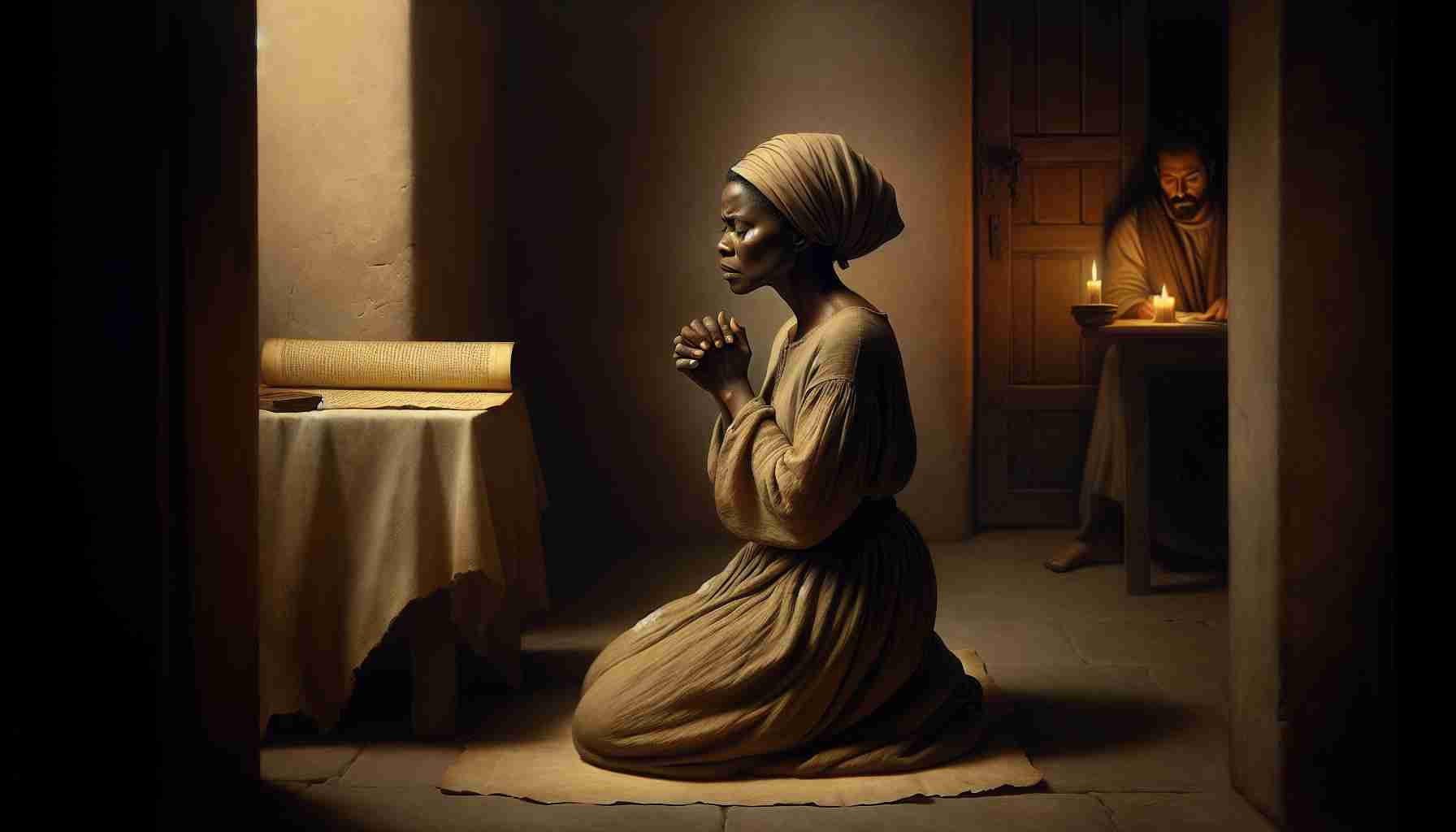

The dust had not yet settled from the morning patrol when the widow arrived. Capernaum’s streets pulsed with tension—Roman soldiers at the gates, temple tax collectors near the market, and murmurs of revolution down by the boats. Still, she came, wrapped in the faded shawl that once smelled like myrrh from her wedding day, though now it only reeked of sweat and determination.
She came every day. I saw her peering through the crowd, eyes narrowed, posture stiffened by grief and months of unanswered pleas. I was a clerk in the magistrate’s hall—lowborn, unseen, and mostly ignored. But I noticed. Some dismissed her as mad. Others, just persistent.
Her voice carried even when she knelt: “Grant me justice against my adversary.” There was no lawyer at her side, no family to support her. Just her—and the sound of her knocks at our gate.
The judge, a cold man with fine robes and rotting morals, scoffed every time. “She’s a fly in my ear,” he grumbled. “She’ll tire.” But she never did. Each day, she waited. Sometimes for hours. Rain or dust storm, she waited. And when the judge left, brushing past anyone in his path, she shouted after him—not curses, but the same simple plea: “Grant me justice.”
One day, his patience snapped. “Fine,” he spat—half amusement, half disgust. “Educate her enemy with a verdict.” The courtroom hissed in surprise. She sunk to her knees, hands trembling. Not in fear. In relief.
That should have been the end of it.
But days later, she returned—not frantic, not pleading. Peace draped over her like a second shawl. I watched from behind the curtain, folding scrolls, when the door opened again. This time, it wasn’t her. This time, He came.
I had seen Him before—Jesus of Nazareth. Rumors clung to Him like dew: healer, prophet, lunatic, Messiah. He moved through the room without fear or ceremony, stopping before the widow. She looked up, startled. Then slowly—smiling. Not the smile of victory. Of recognition.
He turned, eyes sweeping the room. “Do you see her?” His voice was soft, but it carried. “Even an unjust judge gave in—not from righteousness, but because she did not give up. And my Father—do you not think He hears you more than that?”
My mouth dried. I gripped the scroll tighter, suddenly aware of how long it had been since I had prayed with any hope.
He looked at me. Directly. Not through me—as others did. But into me. A single glance that opened every locked room inside. Then, without fanfare, He left.
I found her outside afterward, sitting on a worn bench. “He knew your story,” I said.
She nodded. “He heard every knock before I ever made them.”
That night, for the first time since my brother died and I buried my prayers beside him, I spoke again to God. Not with elegance—just with honesty.
And like the widow, I did not stop.
The dust had not yet settled from the morning patrol when the widow arrived. Capernaum’s streets pulsed with tension—Roman soldiers at the gates, temple tax collectors near the market, and murmurs of revolution down by the boats. Still, she came, wrapped in the faded shawl that once smelled like myrrh from her wedding day, though now it only reeked of sweat and determination.
She came every day. I saw her peering through the crowd, eyes narrowed, posture stiffened by grief and months of unanswered pleas. I was a clerk in the magistrate’s hall—lowborn, unseen, and mostly ignored. But I noticed. Some dismissed her as mad. Others, just persistent.
Her voice carried even when she knelt: “Grant me justice against my adversary.” There was no lawyer at her side, no family to support her. Just her—and the sound of her knocks at our gate.
The judge, a cold man with fine robes and rotting morals, scoffed every time. “She’s a fly in my ear,” he grumbled. “She’ll tire.” But she never did. Each day, she waited. Sometimes for hours. Rain or dust storm, she waited. And when the judge left, brushing past anyone in his path, she shouted after him—not curses, but the same simple plea: “Grant me justice.”
One day, his patience snapped. “Fine,” he spat—half amusement, half disgust. “Educate her enemy with a verdict.” The courtroom hissed in surprise. She sunk to her knees, hands trembling. Not in fear. In relief.
That should have been the end of it.
But days later, she returned—not frantic, not pleading. Peace draped over her like a second shawl. I watched from behind the curtain, folding scrolls, when the door opened again. This time, it wasn’t her. This time, He came.
I had seen Him before—Jesus of Nazareth. Rumors clung to Him like dew: healer, prophet, lunatic, Messiah. He moved through the room without fear or ceremony, stopping before the widow. She looked up, startled. Then slowly—smiling. Not the smile of victory. Of recognition.
He turned, eyes sweeping the room. “Do you see her?” His voice was soft, but it carried. “Even an unjust judge gave in—not from righteousness, but because she did not give up. And my Father—do you not think He hears you more than that?”
My mouth dried. I gripped the scroll tighter, suddenly aware of how long it had been since I had prayed with any hope.
He looked at me. Directly. Not through me—as others did. But into me. A single glance that opened every locked room inside. Then, without fanfare, He left.
I found her outside afterward, sitting on a worn bench. “He knew your story,” I said.
She nodded. “He heard every knock before I ever made them.”
That night, for the first time since my brother died and I buried my prayers beside him, I spoke again to God. Not with elegance—just with honesty.
And like the widow, I did not stop.